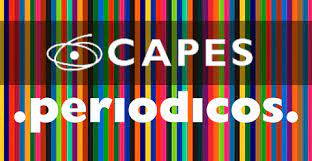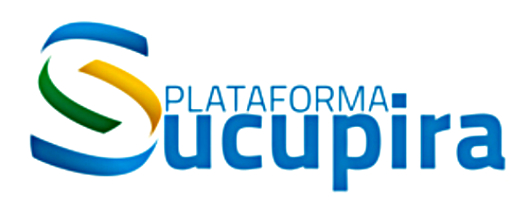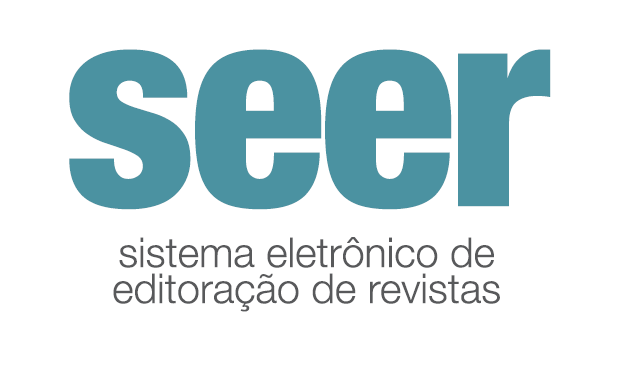Mobilização das habilidades e estratégias metacognitivas por meio dos jogos digitais
DOI:
https://doi.org/10.12957/redoc.2021.61036Keywords:
Metacognição. Jogos digitais. Aprendizagem.Abstract
A metacognição se refere ao conhecimento, monitoramento e controle das habilidades cognitivas de uma pessoa antes, durante e após o início da aprendizagem. A literatura mostra que a obtenção do conhecimento pelo aluno que tem uma relação significativa com o desempenho escolar, mas nem todas as estratégias de aprendizagem utilizadas têm o mesmo resultado. Além disso, a tecnologia educacional, especialmente com os jogos digitais, se desenvolveu rapidamente na última década e teve um impacto profundo em todos os níveis de educação. Essa Revisão Sistemática de Literatura (RSL), propõe o estudo em várias bases de conhecimento, sobre a mobilização da metacognição nos jogos digitais para responder à pergunta: os alunos que utilizam os jogos digitais em seu aprendizado, fazem uso da consciência, habilidades e estratégias metacognitivas? Fazendo uso da Ferramenta StArt (State of the Art through Systematic Review), 770 estudos foram extraídos de diversas bases de dados de conhecimento e passaram pelos processos de identificação, triagem, seleção e qualidade para chegar ao número de 6 artigos que satisfizeram os critérios adotados. Como resultado, compreende-se que se trata de um estudo novo para a literatura. Nos dados, encontramos que 75% fazem uso das habilidades metacognitivas, 63% do conhecimento metacognitivo e 67% utilizam os processos cognitivos nos jogos.
References
ALTIOK, S.; BAŞER, Z.; YÜKSELTÜRK, E. Enhancing metacognitive awareness of undergraduates through using an e-educational video environment. Computers and Education, v. 139, p. 129–145, 2019.
ANTHONYSAMY, L.; KOO, A. C.; HEW, S. H. Self-regulated learning strategies and non-academic outcomes in higher education blended learning environments: A one decade review. Education and Information Technologies, n. September, 2020.
BISWAS, G. et al. Multilevel Learner Modeling in Training Environments for Complex Decision MakingIEEE Transactions on Learning Technologies, 2019.
BORUCHOVITCH, E. Estratégias de aprendizagem e desempenho escolar: considerações para a prática educacional. Psicologia: Reflexão e Crítica, v. 12, n. 2, p. 361–376, 1999.
BRAAD, E.; DEGENS, N.; IJSSELSTEIJN, W. A. Designing for metacognition in game-based learning: A qualitative review. Translational issues in psychological science, v. 6, n. 1, p. 53, 2020.
CHRISTOPH, L. H. The role of metacognitive skills in learning to solve problems. [s.l: s.n.].
CLARK, D. B.; TANNER-SMITH, E. E.; KILLINGSWORTH, S. S. Digital Games, Design, and Learning: A Systematic Review and Meta-Analysis. Review of Educational Research, v. 86, n. 1, p. 79–122, 2016.
DEFFENDI, L. T.; BORUCHOVITCH, E. Avaliação do monitoramento metacognitivo : análise da produção científica. Avaliação Psicológica, 2016, 15(n. esp), p. 57–65, 2016.
DEMBO, H. M. Learning To Teach Is Not Enough— Future Teachers Also Need To Learn How To Learn. Teacher Education Quarterly, v. 28, 2001.
DEMBO, M. H.; HILLMAN, S. B. An instructional model approach to educational psychology. Contemporary Educational Psychology, v. 1, n. 2, p. 116–123, 1976.
DOOLITTLE, J. H. Using Riddles and Interactive Computer Games to Teach Problem-Solving Skills. Teaching of Psychology, v. 22, n. 1, p. 33–36, 1995.
DOYLE, B. Metacognitive Awareness: Impact of a Metacognitive Intervention in a Pre-nursing Course. [s.l.] LSU Doctoral Dissertations, 2013.
EGENFELDT-NIELSEN, S. The challenges to diffusion of educational computer games. Leading Issues in Games Based Learning, v. 141, 2010.
FLAVELL, J. H. Metacognition and Cognitive Monitoring. American Psychological Association, v. 34, n. 10, p. 906–911, 1979.
FOX, E.; RICONSCENTE, M. Metacognition and self-regulation in James, Piaget, and Vygotsky. Educational Psychology Review, v. 20, n. 4, p. 373–389, 2008.
FRENKEL, S. Metacognitive components in learning to learn approaches. International Journal of Psychology : a Biopsychosocial Approach, v. 14, n. December 2014, p. 95–112, 2014.
FUND, E. E. Metacognition and Self-regulated Learning: Guidance Report. The Sutton Trust-Education Endowment Foundation Teaching and Learning Toolkit, p. 1–30, 2018.
GJICALI, K.; FINN, B. M.; HEBERT, D. Effects of belief generation on social exploration, culturally-appropriate actions, and cross-cultural concept learning in a game-based social simulation. Computers and Education, v. 156, n. March, p. 103959, 2020.
GROS, B. The impact of digital games in education. First Monday, v. 8, n. 7, jul. 2003, v. 8, n. 7, 2003.
HENDRIX, M.; BACKLUNG, P. Educational Games – Are They Worth The Effort ? Games and Virtual Worlds for Serious Applications (VS-GAMES), n. December, p. 1–8, 2013.
HERTZOG, C.; DUNLOSKY, J. Metacognition in later adulthood: Spared monitoring can benefit older adults’ self-regulation. Current Directions in Psychological Science, v. 20, n. 3, p. 167–173, 2011.
KIRRIEMUIR, J.; MCFARLANE, A. Literature Review in Games and Learning. A NESTA Futurelab Research report - report 8. 2004., p. 1–40, 2004.
MARONE, V.; STAPLES, C.; GREENBERG, K. H. Learning how to learn by solving bizarre problems: a playful approach to developing creative and strategic thinking. On the Horizon, v. 24, n. 1, p. 112–120, 2016.
MATLIN, W. M. Psicologia Cognitiva. 5a. ed. [s.l.] LTC Editora, 2004.
METCALFE, J. Metacognitive Judgments and Control of Study. Current Directions in Psychological Science- Columbia University, v. 18, n. 3, p. 159–163, 2009.
MITCHELL, A.; SAVILL-SMITH, C. The use of computer and video games for learning A review of the literature The use of computer and video games for learning. [s.l: s.n.].
OLIVEIRA, K. L. DE; BORUCHOVITCH, E.; SANTOS, A. A. A. DOS. Estratégias de aprendizagem e desempenho acadêmico: evidências de validade. Psicologia: Teoria e Pesquisa, v. 25, n. 4, p. 531–536, 2009.
PRENSKY, M. The Games Generations: How Learners Have Changed. Computers in Entertainment, v. 1, n. 1, p. 1–26, 2001.
PRENSKY, M. Digital Game-based Learning Prensky. ACM Computer in Entertainment, v. 1, n. 1, p. 1–4, 2003a.
PRENSKY, M. Digital game-based learning. Computers in Entertainment (CIE), v. 1, n. 1, p. 21, 2003b.
ROZO, J. M. K. Creatividad y videojuegos: nuevos paradigmas en la generación de aprendizaje autónomo. Revista Repertorio de Medicina y cirugia, v. 20, n. 1, p. 45–50, 2011.
SAMPAIO, R. F.; MANCINI, M. C. Systematic Review Studies: a Guide for Careful Synthesis of Scientific Evidence. Brazilian Journal of Physical Therapy, v. 11, n. 1, p. 77–82, 2007.
SANDBERG, J. A. C.; WIELINGA, B. J.; CHRISTOPH, L. H. The role of prescriptive models in learning. Computers and Education, v. 59, n. 2, p. 839–854, 2012.
SAVI, R.; ULBRICHT, V. R. Jogos Digitais Educacionais: Benefícios E Desafios. Renote, v. 6, n. 1, 2008.
SHANNON, S. V. Using Metacognitive Strategies and Learning Styles to Create Self-Directed Learners. Institute for Learning Styles Journal, v. 1, n. 2001, p. 14–28, 2008.
SIOUX GROUP, & G. G. Pesquisa Game Brasil 2021. [s.l: s.n.].
STERNBERG, R. Psicologia Cognitiva. Porto Alegre: Artmed , Porto Alegre, 2008.
TAUB, M.; AZEVEDO, R. Using Sequence Mining to Analyze Metacognitive Monitoring and Scientific Inquiry Based on Levels of Efficiency and Emotions during Game-Based Learning. Journal of Educational Data Mining, v. 10, n. 3, p. 1–26, 2018.
VAN ECK, R. Digital game-based learning: Still restless, after all these years. Educause Review, v. 50, n. 6, p. 13, 2015.
VAN VELZEN, J. Metacognitive learning: Advancing learning by developing general knowledge of the learning process. Metacognitive Learning: Advancing Learning by Developing General Knowledge of the Learning Process, p. 1–162, 2015.
VLACHOPOULOS, D.; MAKRI, A. The effect of games and simulations on higher education: a systematic literature review. [s.l.] International Journal of Educational Technology in Higher Education, 2017. v. 14
WOUTERS, P.; VAN OOSTENDORP, H. A meta-analytic review of the role of instructional support in game-based learning. Computers and Education, v. 60, n. 1, p. 412–425, 2013.
ZIMMERMAN, B. J. Investigating Self-Regulation and Motivation: Historical Background, Methodological Developments, and Future Prospects. American Educational Research Journal, v. 45, n. 1, p. 166–183, 2008.
Downloads
Published
How to Cite
Issue
Section
License
Autores que publicam nesta revista concordam com os seguintes termos:- Autores mantém os direitos autorais e concedem à revista o direito de primeira publicação, com o trabalho simultaneamente licenciado sob a Creative Commons Attribution License que permitindo o compartilhamento do trabalho com reconhecimento da autoria do trabalho e publicação inicial nesta revista.
- Autores têm autorização para assumir contratos adicionais separadamente, para distribuição não-exclusiva da versão do trabalho publicada nesta revista (ex.: publicar em repositório institucional ou como capítulo de livro), com reconhecimento de autoria e publicação inicial nesta revista.
- Autores têm permissão e são estimulados a publicar e distribuir seu trabalho online (ex.: em repositórios institucionais ou na sua página pessoal) a qualquer ponto antes ou durante o processo editorial, já que isso pode gerar alterações produtivas, bem como aumentar o impacto e a citação do trabalho publicado (Veja O Efeito do Acesso Livre).



















